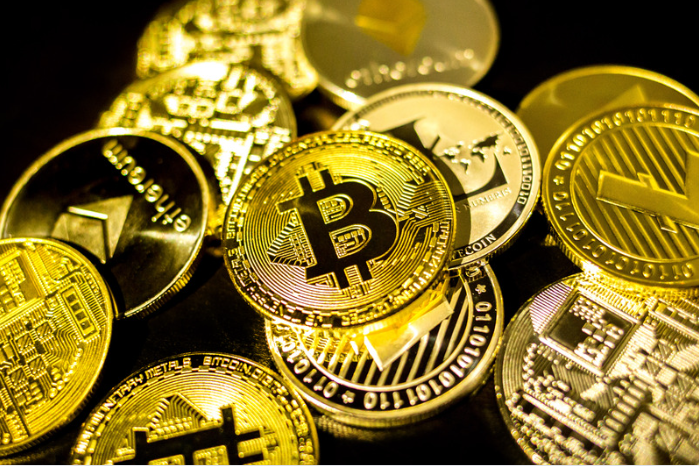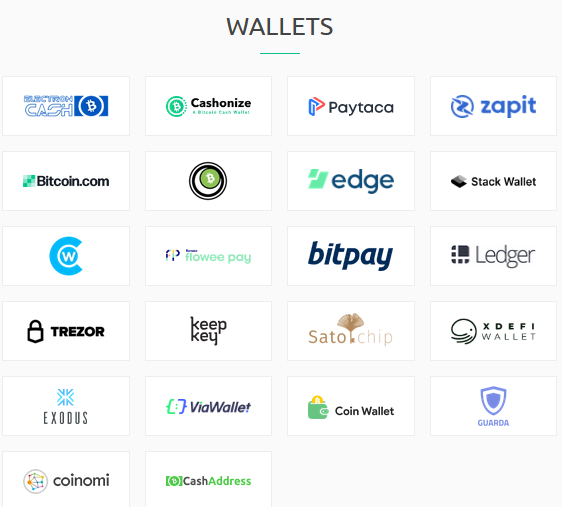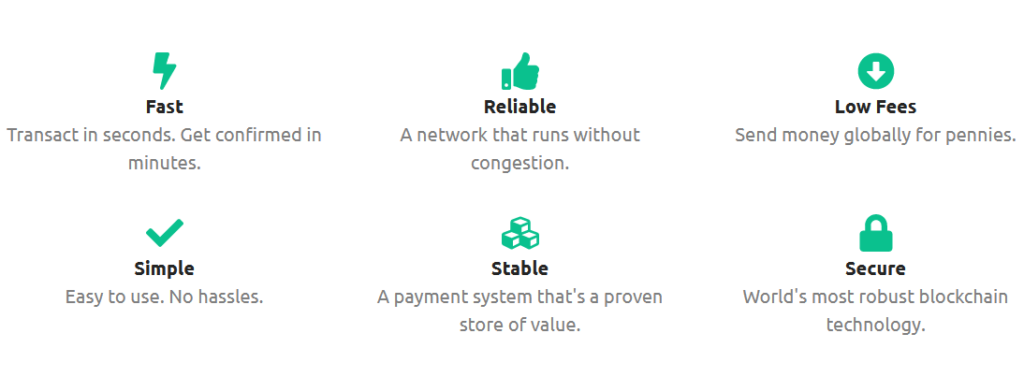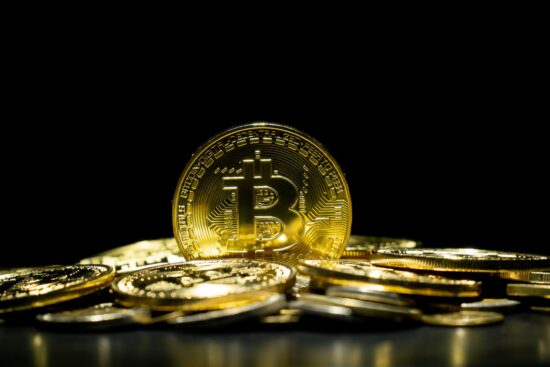
Hello Crypto enthusiasts! Are you folks drained of distress about the safety of your Bitcoin Cash wallet? No need to worry now, as The Blockchainist is bringing you a comprehensive guide on how to secure your digital wallet on the Blockchain.
Safeguarding your financial assets is extremely important, especially with those high-tech digital security threats lurking around. The cryptocurrency terrain is evolving constantly, so ensuring the security of your Bitcoin Cash (BCH) wallet is of prime importance. It’s high time that every crypto investor should adopt security measures capable of protecting their funds from possible threats.
Cryptocurrency wallets can be susceptible to risks if left unchecked. That is why we have dedicated this web blog to empowering people about the safety of their digital Bitcoin cash wallets. Learning about best practices for securing your crypto wallets and analyzing wallet security risks and threats can help you secure your digital wallet.
In this comprehensive web blog, you will explore
What is Bitcoin Cash Wallet?
What are the types of Bitcoin cash wallets?
how to send Bitcoin on the cash app to another wallet, and more.
What is Bitcoin Cash Wallet (BCH)?
Bitcoin Cash Wallet (BCH) is a digital currency or tool derived from Bitcoin itself. Why, you asked? This aims to store, send, and receive Bitcoin Cash (BCH). Additionally, it’s the same as a physical wallet. Your physical wallet holds traditional currency for you, right/ Like cash, credit cards, etc. Bitcoin cash wallet lets you manage your Bitcoin holdings safely. Bitcoin Cash (BCH) is a spin-off of Altcoin that was launched in 2017. It is split into two cryptocurrencies: Bitcoin Cash and Bitcoin SV.
Know More About Bitcoin Cash:
Here are some points to showcase how Bitcoin and Bitcoin Cash differ:
- Main function: Just like Bitcoin, Bitcoin Cash offers secure transactions without the need for intermediaries as they offer peer-to-peer transactions. Individuals holding a BCH can send or receive payments directly from another Bitcoin cash holder.
- Technicalities: one of the main differences between Bitcoin and BCH is their block size. Bitcoin has a smaller block size than BCH. Due to its larger size, BCH enables faster transaction processing with lower fees.
- Position in the Market: BCH has a community of its own in the crypto blockchain world and has been beautifully established as a prominent cryptocurrency in the market.
What Are the Different Types of Bitcoin Cash Wallets?
There are four different types of Bitcoin Cash Wallets. Each wallet offers different accessibility, various layers of security, and convenience for users. These four categories can be described based on Hot storage or Cold Storage.
- Hot Wallets: Hot wallets are connected to the internet. They are easily accessible but come with greater security threats.
- Cold Wallets: Cold wallets are not connected to the internet directly; hence, they are more secure. You can choose your Bitcoin cash wallet based on the difference between hot and cold storage.

Here are the Main 4 Bitcoin cash wallets:
- Hardware Wallets are also known as Cold Storage Wallets because of their offline status.
- Software Wallets are also known as Hot Storage Wallets because they need the internet to make transactions.
- Paper Wallets (Cold Storage): Paper wallets are a cold storage wallet. They keep their private keys offline.
- Online Wallets (Hot Storage): Online wallets are the most convenient option but also the least secure, so we can classify them as hot storage.
Others:
- Multi-Signature Wallets: These imply hardware and software wallets and offer higher security. They require multiple approvals for transactions, which adds an extra layer of security.
- Hybrid Wallets: Hybrid Wallets combine different kinds of storage wallets. They have features of multiple wallets, such as online wallets and hardware wallet backups for private key storage.

Choosing a Secure Wallet for Yourself
When we talk about storing user’s Bitcoin Cash, everyone prefers high security. Both wallets offer different options; let’s take a look at their pros and cons:
- Safety Strength of Hardware Wallets
- Offline Availability: The Hardware wallet is the most important element needed to access your BCH. It is placed on a secure physical device. Therefore, this offline storage lessens the security risks, as hackers won’t be able to access your private keys without the internet.
- Physical Safety: Hardware wallets need PIN codes and other security elements to prevent unauthorized access. Even if someone has your device, they can’t access it without the PIN.
- Confirmation required: Physical confirmation is needed in most hardware wallets to complete the transaction. It helps prevent accidental and unauthorized transfers.
- Safety Weaknesses of Hardware Wallet
- Damage: If your hardware wallet gets damaged or you lose it somewhere, you might not be able to access BCH without a proper backup. Hence, recovery processes for hardware wallets can be complex.
- Pricing: Hardware wallets are usually less costly than software wallets as they have high upfront costs.
- Inconvenience: Hardware wallets have less convenient transaction processes than software wallets because they require you to connect with your computer device.
- Safety Strength of Software Wallets
- Convenient: Software wallets are readily available on Computer devices and smartphones, so they offer convenient access to your BCH transactions.
- Budget-friendly: Most software wallets are free to use and have low fees compared to Hardware wallets.
- Safety Weaknesses of Software Wallet
- Online Storage: Software wallets can be vulnerable because they store your keys on your device. Any virus attack, phishing scam, or physical threat can compromise the security of your wallet.
- Hacking: Software wallets are easy to hack as they are mostly available online.
- User Error: You can permanently lose your BCH if you accidentally delete your software wallets.
Choosing an Ideal Wallet for Yourself
It’s totally up to you to decide which wallet fits you. Moreover, the best choice would be to analyze your own needs and risk tolerance:
- For Maximum Safety: If you have a massive amount of BCH and need the ultimate protection for it, a Hardware wallet is a good choice.
- For Daily Transactions: If you have a smaller amount of BCH and prioritize convenience for daily transactions, a good software wallet can be a better option.
Make sure you choose a reputable wallet and back up your Bitcoin cash wallet correctly.
How To Send Bitcoin On The Cash App To Another Wallet?
Want to move Bitcoin from your Cash App to another wallet? Just follow these steps:
- Start by opening the Cash App, then hit the Money button (it looks like a building).
- Next, choose Bitcoin (BTC).
- Now, look for the Send or Receive symbol and select Send Bitcoin.
- Decide how much Bitcoin you’re sending; you can bounce between USD and BTC displays.
- Then, figure out who gets it:
- You can enter their long, complicated Bitcoin wallet address. Alternatively, you can click the QR code scanner icon (top left corner) to scan a QR code containing your wallet address. It’s way faster if their QR code is right there.
- Or, if your contact has a Cashtag ($Cashtag username), search for them. But remember, sending to a Cashtag isn’t the same as sending to another wallet address.
- Always double-check the recipient’s details, or money could go missing. Once you’re sure, hit the wallet address to confirm it.
- Now, choose a speed to send at.
- Standard is the slowest but cheapest.
- Priority is quicker but pricey.
- Rush is the Fastest but costliest.
- Finally, look over all the details of the transaction, including amount, recipient, and fees. Happy with everything? Then push Confirm & Send.
- Put your Cash App PIN to seal the deal.
Tips to Secure Bitcoin Cash Wallet in the Blockchain
- Using Cash App, you can’t send Bitcoin directly to others via Bitcoin wallet addresses. The only way is to Send it to fellow Cash App users using their Cashtag names.
- Remember, once approved, transactions are final. So, ensure you have the correct recipient address before sending.
- Keep track of the Current Bitcoin network fees. They could change anytime. Cash App’s fees are just an added layer on top of these network fees.

Wrapping Up!
To wrap up, keeping your Bitcoin Cash wallet in the Blockchain safe is key to warding off digital threats. This guide’s core safety steps can boost your BCH security. These additionally include selecting a trustworthy wallet provider, using two-factor authentication, and keeping tabs on your account. With these measures, you’ll feel secure knowing your funds are safe.
The choice of wallet software, hardware, or paper doesn’t matter as much as following safety guidelines and staying updated on cryptocurrency security trends. This helps you confidently handle the constantly changing landscape of the blockchain world.
People Also Asked:
Q.1- Is the aqua bitcoin wallet safe?
Ans: Aqua wallet is a free, open-source wallet with a non-custodial core designed for iOS and Android users. It’s a stablecoin wallet where you have control over your Bitcoin and money.
Q.2- How do you import a wallet into Bitcoin Cash?
Ans: Log in to your wallet and go to settings> wallets & addresses. Select Bitcoin and click the “import address” button on the right. After that, enter your details (private key, name, etc.) and choose your wallet. Click on the “Import your private key” button.
Q.3- What is a Bitcoin wallet generator?
Ans: A Bitcoin wallet generator is open-source software that generates unique public and private keys for the Bitcoin Cash Wallet.
Q.4- How do you check your Bitcoin wallet balance?
Ans: Search for Some Bitcoin address balance tools & Applications that can help you to check your Bitcoin wallet. balance
Q.5- What happens to unclaimed Bitcoin wallets?
Ans: Unclaimed Bitcoin wallets are lost permanently if you lose access to the Bitcoin wallet. With the key, you can prove your ownership of the Bitcoins.
Q.6- Is there a cash app bitcoin wallet address?
Ans: Yes, for customer deposits, the cash app uses P2WPKH Segwit addresses.
Q.7- How to spot a fake Bitcoin wallet?
Ans: Use official sources of trusted wallets to identify and verify your wallet provider.






